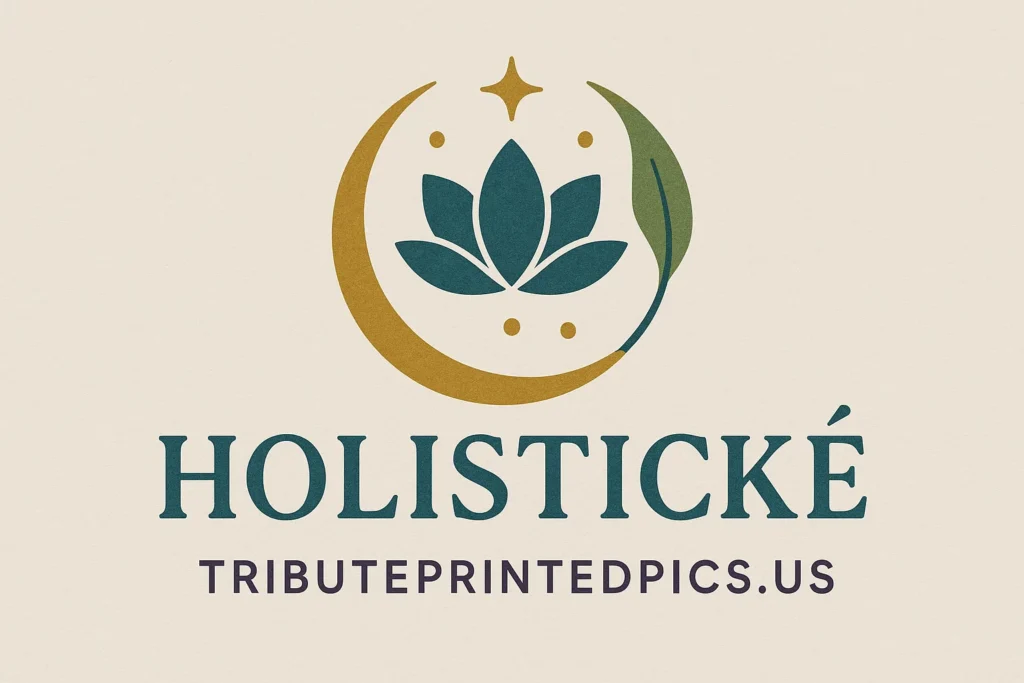Understanding Holisticke and Its Core Philosophy
Holisticke is more than a wellness trend; it is a wellness philosophy rooted in understanding the human body, mind, and spirit as interconnected systems. Unlike conventional approaches that focus solely on symptoms, Holisticke emphasizes root causes of discomfort and disease. This approach combines integrative medicine, ancient healing traditions such as Ayurveda and Traditional Chinese Medicine, and modern scientific insights. The philosophy encourages individuals to take responsibility for their own whole person wellness, incorporating physical health, mental clarity, emotional balance, and spiritual connection.
By addressing the holistic lifecycle, Holisticke focuses on preventive care, encouraging a mind body connection through daily movement, nutrition, and stress management practices. It is especially relevant in modern life, where chronic conditions, poor sleep patterns, and high stress levels are increasingly common. The approach reminds us that health beyond disease is attainable when we consider all dimensions of life together.
The Pillars of Holisticke: Mind, Body, and Spirit
Holisticke promotes a mind body spirit framework that integrates various aspects of wellness. The mind is nurtured through practices like mindfulness, journaling, and emotional processing. These methods help maintain mental clarity and reduce stress levels, allowing individuals to respond rather than react to challenges.
The body is cared for through functional movement routines, whole food nutrition, hydration, and proper sleep quality. By focusing on physical health, Holisticke ensures that energy levels, immunity, and mobility are optimized. Small daily micro habits, such as stretching, mindful eating, or brief meditation, accumulate into meaningful long-term results.
The spirit dimension emphasizes spiritual wellness, sense of purpose, and community support. Engagement with supportive communities and connecting with something greater than oneself enhances resilience and promotes overall emotional wellness. Holisticke encourages people to embrace balance rather than perfection, understanding that sustainable wellness is a journey, not a destination.
Integrative Medicine and Holisticke Practices
At the core of Holisticke is integrative medicine, which combines conventional medical approaches with natural healing traditions. Treatments might include herbal remedies, acupuncture, and somatic practices, which focus on body awareness to alleviate chronic pain or tension.
| Practice | Purpose | Benefits |
|---|---|---|
| Ayurveda | Balancing doshas | Improved digestion, energy |
| Traditional Chinese Medicine | Energy flow | Stress reduction, pain management |
| Breathwork & Meditation | Mind-body regulation | Mental clarity, emotional balance |
| Functional Movement | Mobility & strength | Injury prevention, posture improvement |
By integrating these methods, Holisticke allows individuals to leverage the self healing capacity of the body, addressing symptom vs. cause rather than temporary fixes. This holistic approach ensures interconnected health domains physical, emotional, and spiritual are all attended to.
Nutrition, Diet, and Whole Food Practices
Nutrition is central to Holisticke. A whole food nutrition plan emphasizes minimally processed foods, balanced macronutrients, and hydration. Proper diet supports both physical health and mental clarity, while also nurturing emotional wellness.
- Focus on whole foods like vegetables, fruits, nuts, and legumes
- Avoid processed sugars and artificial additives
- Maintain hydration to improve digestion, cognition, and energy
Modern science confirms that diet directly affects inflammation, sleep, stress, and immunity. In Holisticke, nutritional habits are part of daily habits for wellness, blending seamlessly with movement, mindfulness, and preventive care.
Stress Management and Emotional Well-being
Holisticke emphasizes reducing stress levels through mindfulness, breathwork, and therapy and somatic release. Chronic stress contributes to fatigue, poor sleep patterns, and worsening chronic conditions.
- Journaling for emotional clarity
- Meditation and breathing exercises
- Supportive relationships and community engagement
Managing stress also fosters emotional balance and strengthens resilience. Integrating these practices into daily life enhances the mind-body connection and promotes long-term health beyond disease.
Functional Movement and Physical Vitality
Functional movement routines are key in Holisticke. These exercises improve posture, strength, and mobility while reducing the risk of injury. Movement is not just for fitness—it supports physical health, mental clarity, and emotional balance.
- Stretching and mobility work
- Low-impact aerobic activities
- Strength training with bodyweight or resistance
Even small daily micro habits like walking or light stretching contribute to a holistic lifestyle adaptation, making wellness sustainable over time.
Sleep and Recovery: The Overlooked Pillars
Proper sleep quality is essential for restoration, cognitive function, and emotional regulation. Holisticke emphasizes sleep hygiene: maintaining consistent schedules, reducing clutter, and creating a supportive environment for rest.
- Avoid screen exposure before bedtime
- Declutter and maintain indoor air quality
- Incorporate relaxation practices such as meditation or breathwork
These practices enhance the mind-body-spirit equilibrium, promoting holistic approach to whole person health.
Environmental and Social Wellness
Holisticke acknowledges the role of the environment in well-being. Environmental wellness includes living spaces that support physical health, reduce toxins, and encourage movement. Social wellness emphasizes supportive relationships and community support, as humans thrive when connected and engaged.
- Declutter and light design
- Sustainable living practices
- Participation in community activities
A connective health model reinforces that wellness is not isolated; it is affected by surroundings, relationships, and lifestyle patterns.
Holistic Lifecycle: Preventive and Sustainable Care
Holisticke stresses preventive lifestyle rather than reactive interventions. Through early interventions, diet, movement, and mindfulness, individuals can prevent chronic conditions and maintain whole person wellness.
- Regular checkups and practitioner guidance
- Focus on root cause investigation
- Sustainable habits instead of lifestyle over quick fix
By treating health as a holistic lifecycle, individuals enjoy a longer, healthier life, integrating ancient healing wisdom and modern wellness science.
Integrating Spirituality and Purpose
Spiritual connection and sense of purpose are central to Holisticke. Engaging in reflective practices, volunteering, or creative pursuits nurtures spiritual wellness and enhances emotional wellness. Individuals with a clear sense of purpose report higher resilience and better mental clarity.
- Daily meditation or prayer
- Mindfulness in daily activities
- Participation in community or spiritual groups
This emphasis reinforces the mind-body-spirit synergy and supports long-term well-being.
Lifestyle Changes for Modern Life
Implementing Holisticke requires lifestyle change rather than temporary adjustments. Modern life challenges—work stress, poor diets, and sedentary habits—necessitate mindful planning and consistency.
- Adopt daily habits for wellness
- Balance work, rest, and play
- Integrate functional movement and whole foods consistently
These strategies cultivate integrated wellness and encourage holistic lifestyle adaptation, merging ancient wisdom with modern living realities.
Choosing a Practitioner and Support System
When engaging in Holisticke practices, choosing a qualified integrative practitioner is critical. Their credentials ensure safe, effective guidance. Additionally, supportive relationships amplify success by providing accountability and encouragement.
- Verify practitioner qualifications
- Seek community support
- Maintain consistent communication for guidance
This approach highlights that wellness is both personal and collaborative.
Tracking Progress and Monitoring Health
Tracking your wellness journey is essential. Holisticke encourages monitoring body signals, nutrition, sleep patterns, and stress levels. Tools such as journals, wearable trackers, and check-ins with practitioners enhance preventive care and functional movement routines.
Modern Innovations and Ancient Wisdom Combined
Holisticke blends ancient healing wisdom like Ayurveda with modern wellness science. This integration supports a self healing capacity while remaining evidence-based and practical for modern life.
Conclusion: The Holisticke Path to Lifelong Wellness
Holisticke represents a transformative approach to whole person health. By integrating mind, body, and spirit, prioritizing preventive lifestyle, and embracing sustainable habits, individuals achieve true emotional, physical, and spiritual balance. With functional movement, whole foods, mindful living, and community engagement, Holisticke ensures lasting wellness and health beyond disease.
Frequently Asked Questions (FAQs)
Q1: What is the main focus of Holisticke?
A1: Holisticke emphasizes whole person wellness, addressing the mind, body, and spirit together to promote physical health, emotional balance, and spiritual connection.
Q2: How can I incorporate Holisticke into daily life?
A2: Small daily micro habits like movement, mindfulness, journaling, and healthy nutrition can gradually integrate into your lifestyle.
Q3: Is Holisticke based on science or tradition?
A3: Holisticke blends ancient healing wisdom such as Ayurveda and Traditional Chinese Medicine with modern wellness science and integrative medicine practices.
Q4: Can Holisticke help with chronic conditions?
A4: Yes, by focusing on root cause investigation, functional movement, and preventive care, Holisticke supports long-term management of chronic conditions.
Q5: Do I need a practitioner to practice Holisticke?
A5: While self-guided practices are possible, consulting a qualified integrative practitioner ensures safe and effective guidance tailored to your needs.


